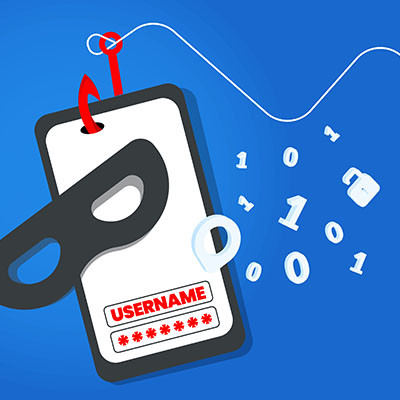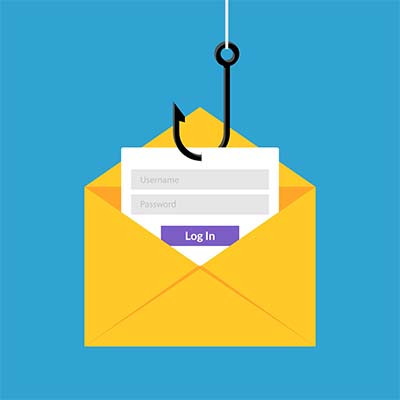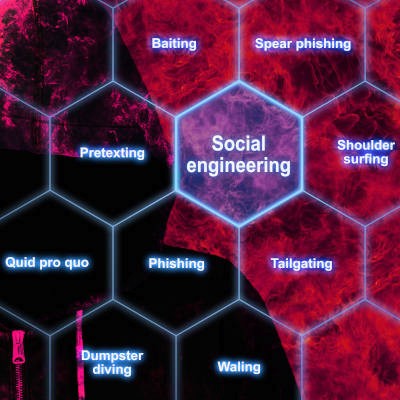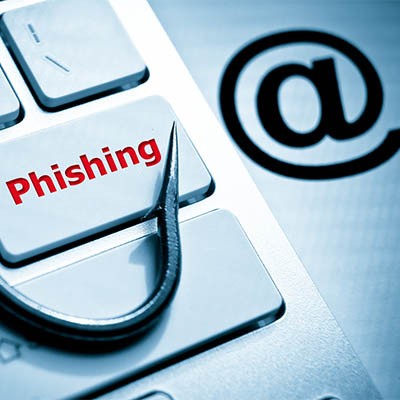It’s all well and good to practice caution when clicking on links in your emails, but chances are you’ll eventually have to commit to clicking on one of them, whether you like it or not. In cases like this, it’s best to go against these links armed with as much information as possible about what they are. Let’s go over how you can check their legitimacy quickly and effectively.
Home
About Us
IT Services
Understanding IT
- Understanding General Data Protection Regulation Compliance
- Understanding Automation
- Understanding Ransomware
- Understanding Shadow IT
- Understanding Your Virtual Identity
- Understanding the Modern Office
- IT Threat Glossary
- Understanding Business Continuity
- Windows Server 2003: End of Life
- Understanding the Internet of Things
- Understanding Network Security
- Understanding SOX
- Understanding BYOD
- Understanding PCI DSS
- Windows XP End of Life
- Understanding HIPAA
- Cloud Computing
News
Blog
Support
Contact Us
(713) 979-2090
- Register
- Login
Zinc Blog
Paypal: Unusual activity suspended your account. For your safety confirm your identity here: [link]
We’re here to tell you, very simply, not to follow links that are in messages like these, and to instead confirm their legitimacy by navigating to the website directly in a new browser.
Ransomware is never a good thing, but for some, it can be worse than it is for others. Take educational institutions, for instance—they’ve become a favorite target for cybercriminals to take advantage of, unfortunately successfully. Many resort to paying up, something that we’d never recommend.
Phishing attacks are nothing new in the business world, and they will almost certainly become more prevalent as time passes. Unfortunately, phishing attacks have adapted their practices to get around advancements in security technology, so businesses must work extra hard to spread awareness of phishing to their employees and train them appropriately.
Network security is a constant problem for many organizations, and it’s mostly because of the many advanced threats that make their homes on the Internet. Businesses who don’t have dedicated IT resources or security professionals do not know how to handle network security or appropriately protect their assets. Let’s examine some of the more common threats that your business should be prepared to address.
Even the best employees will encounter situations where they might accidentally put your organization at risk due to a phishing attack. What are some of the telltale signs of a phishing scam and how can you tell when you need to be cautious? The subject lines of phishing emails can be indicative of their threat level. Let’s take a look.
Hackers and scammers are always trying to turn a profit on businesses just like yours, and you might be surprised by some of their ingenuity. One such way that some hackers choose to make a profit is by twisting the “as a service” business model into something that is particularly dangerous. Even Microsoft has gone on record and called out a particular group of Phishing-as-a-Service providers as a problem.
Hackers have made some nefarious choices over the past several months, many of which involve using the COVID-19 pandemic to spread their influence and steal data through the use of phishing attacks. Let’s explore how these cybercriminals have leveraged a global disaster to their benefit and some ways that you can keep your business secure.
Small businesses face a lot of risks, one obvious one being the threat of potential cybercrime and how its influence can impact their businesses. Let’s consider how these influences have taken shape, and the challenges that small and medium-sized businesses must now face as a result.
Important Update! Urgent! Expires in 1 Day! Confirm your Email Now! Your Password Has Been Stolen!
This type of messaging is often used in some of the most disarming phishing emails. As a business owner, you and your staff need to be vigilant when it comes to catching these scams.
With all that has been going on concerning COVID-19, many businesses and their employees are experiencing no small amount of anxiety as their position appears to grow more and more vulnerable. Whether your employees are working remotely, or are in-house under strict rules, there’s a chance that they are seeking some additional means of making money. Unfortunately, opportunists are taking advantage of people just like them in this unsure time.
According to the latest edition of Microsoft’s regular Security Intelligence Report, phishing attacks are the most prevalent cyberthreat. Considering what is currently going on in the world, this is almost assuredly still the case, which means that businesses and individuals alike need to be more aware of how to spot these attempts. To help, we’ve put together a few tips.
The COVID-19 pandemic has certainly changed the way we do things in a very short period of time. Unfortunately, in times of absolute crisis and anxiety, cybercriminals use it as camouflage to steal data and infiltrate normally-secure networks. Let’s take a look at some of the ways hackers are able to exploit your employees and how you can work to protect your business.
As prevalent as cybersecurity threats unfortunately are today, many users tend to overlook major threats that they just aren’t focused on nearly as much: social engineering attacks. Social engineering attacks are just another means for a cybercriminal to reach their desired ends, and so need to be protected against.
Phishing has been gaining notoriety in cybersecurity circles, as it has been used quite successfully in a variety of business infiltrations and data breaches. Many of the more well-known cyberattacks of the last few years were enabled by phishing. In order to protect your business’ interests, you and your team need to be able to identify these social engineering attempts. We’ll go over a few ways to do so for this week’s tip.
















